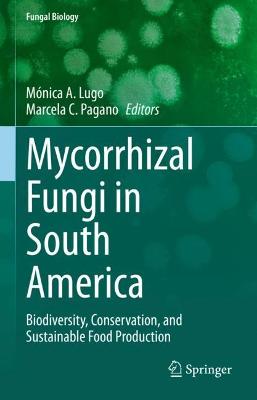Advances in Trichoderma Biology for Agricultural Applications
 portes grátis
portes grátis
Advances in Trichoderma Biology for Agricultural Applications
Amaresan, N.; Sankaranarayanan, A.; Druzhinina, Irina S.; Dwivedi, Mitesh Kumar
Springer Nature Switzerland AG
06/2022
650
Dura
Inglês
9783030916497
15 a 20 dias
1154
Descrição não disponível.
The current state of Trichoderma taxonomy and species identification.- Functional genetics of Trichoderma mycoparasitism.- Trichoderma secondary metabolites involved in microbial inhibition.- Genes involved in the secondary metabolism of Trichoderma and the biochemistry of these compounds.- New insights on the duality of Trichoderma as a phytopathogen killer and a plant protector, based on integrated multi-omics perspective.- The role of secondary metabolites in rizosphere competence of Trichoderma.- Elicitor proteins from Trichoderma for biocontrol potentials.- Genus Trichoderma: Its role in induced systemic resistance of plants against phytopathogens.- Role of Trichoderma in Plant Growth Promotion.- Metabolomic approaches to study Trichoderma-plant interactions.- Management of salinity stress by the application of Trichoderma.- Tolerance to and alleviation of abiotic stresses in plants mediated by Trichoderma spp.- Trichoderma genes for abiotic stress tolerance in plants.- Development, production, and storage of Trichoderma formulations for agricultural applications.- Regulatory issues in commercialization of Trichoderma-based products in the USA.- Industrially important genes from Trichoderma.- Biosynthesis of metal-based nanoparticles by Trichoderma and its potential applications.- Trichoderma role in anthropogenic pollutions mycoremediation: pesticides and heavy metals.- Trichoderma and its products from laboratory to patient bedside in medical Science -an emerging aspect.- Trichoderma enzymes in wine and beer industry.- Trichoderma green mould disease of cultivated mushrooms.- Trichodermosis: Human infections caused by Trichoderma species.
Este título pertence ao(s) assunto(s) indicados(s). Para ver outros títulos clique no assunto desejado.
Trichoderma;Mycoparasitism;Biocontrol;Plant Growth Promotion;Opportunistic Infection
The current state of Trichoderma taxonomy and species identification.- Functional genetics of Trichoderma mycoparasitism.- Trichoderma secondary metabolites involved in microbial inhibition.- Genes involved in the secondary metabolism of Trichoderma and the biochemistry of these compounds.- New insights on the duality of Trichoderma as a phytopathogen killer and a plant protector, based on integrated multi-omics perspective.- The role of secondary metabolites in rizosphere competence of Trichoderma.- Elicitor proteins from Trichoderma for biocontrol potentials.- Genus Trichoderma: Its role in induced systemic resistance of plants against phytopathogens.- Role of Trichoderma in Plant Growth Promotion.- Metabolomic approaches to study Trichoderma-plant interactions.- Management of salinity stress by the application of Trichoderma.- Tolerance to and alleviation of abiotic stresses in plants mediated by Trichoderma spp.- Trichoderma genes for abiotic stress tolerance in plants.- Development, production, and storage of Trichoderma formulations for agricultural applications.- Regulatory issues in commercialization of Trichoderma-based products in the USA.- Industrially important genes from Trichoderma.- Biosynthesis of metal-based nanoparticles by Trichoderma and its potential applications.- Trichoderma role in anthropogenic pollutions mycoremediation: pesticides and heavy metals.- Trichoderma and its products from laboratory to patient bedside in medical Science -an emerging aspect.- Trichoderma enzymes in wine and beer industry.- Trichoderma green mould disease of cultivated mushrooms.- Trichodermosis: Human infections caused by Trichoderma species.
Este título pertence ao(s) assunto(s) indicados(s). Para ver outros títulos clique no assunto desejado.







